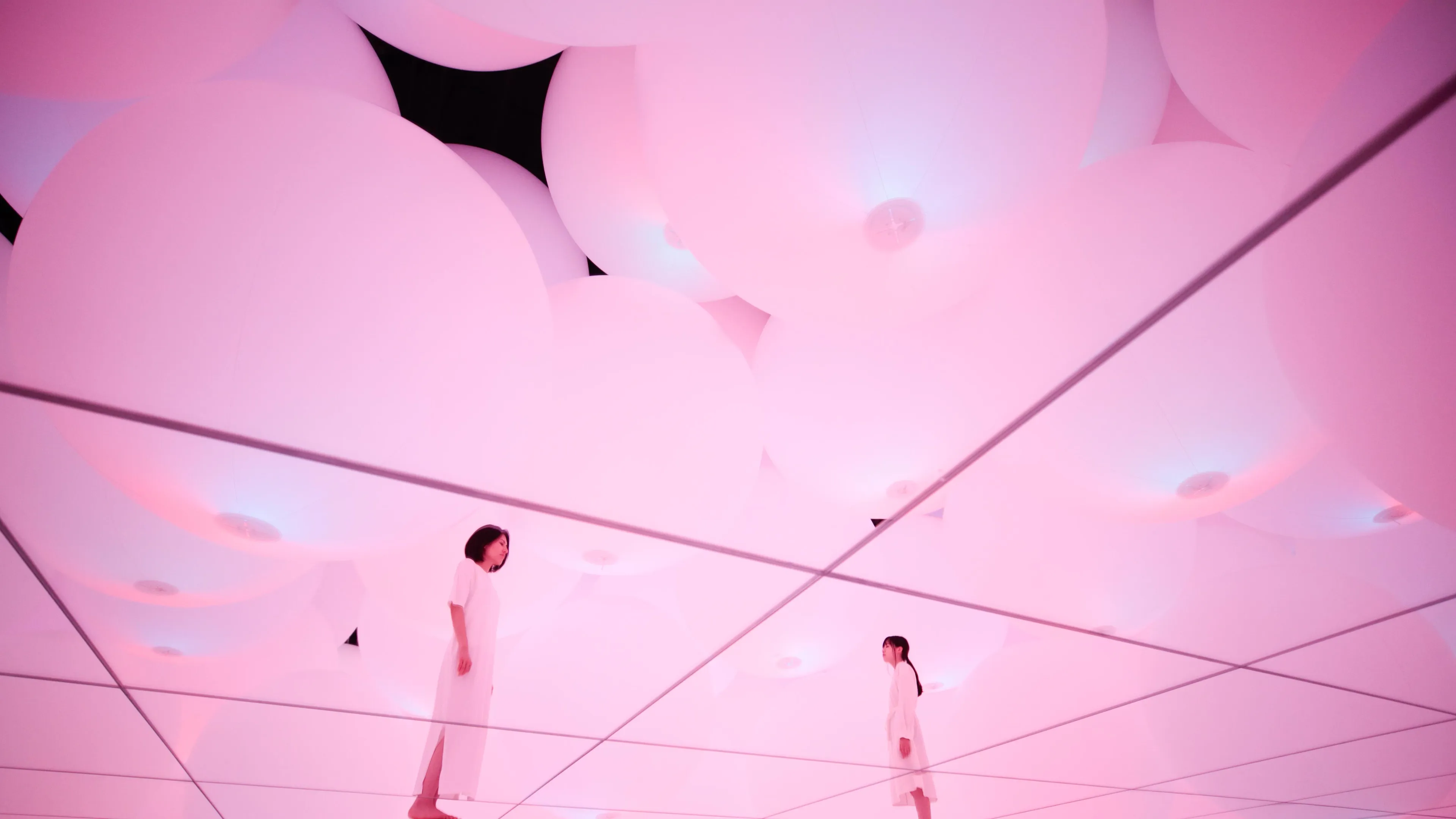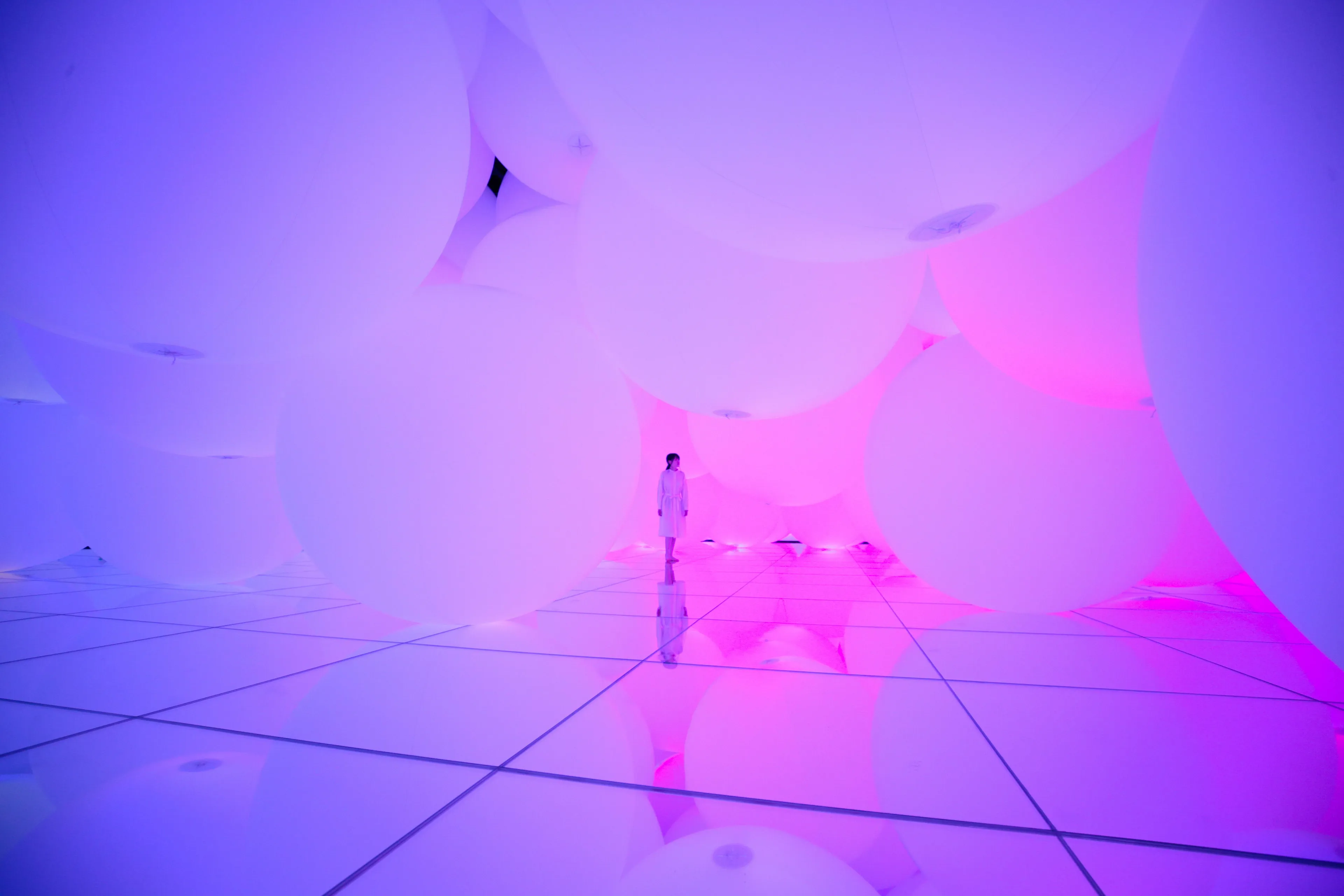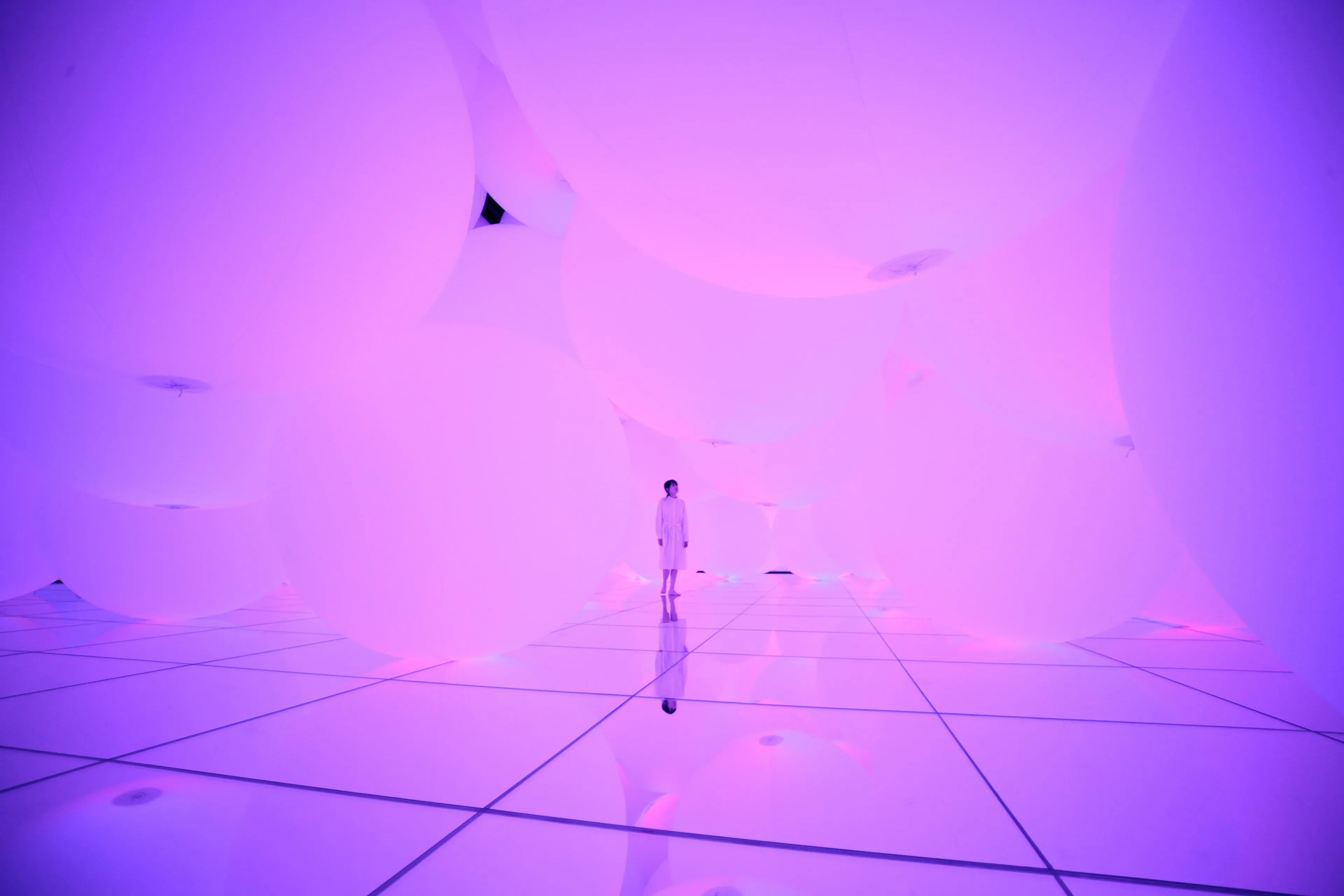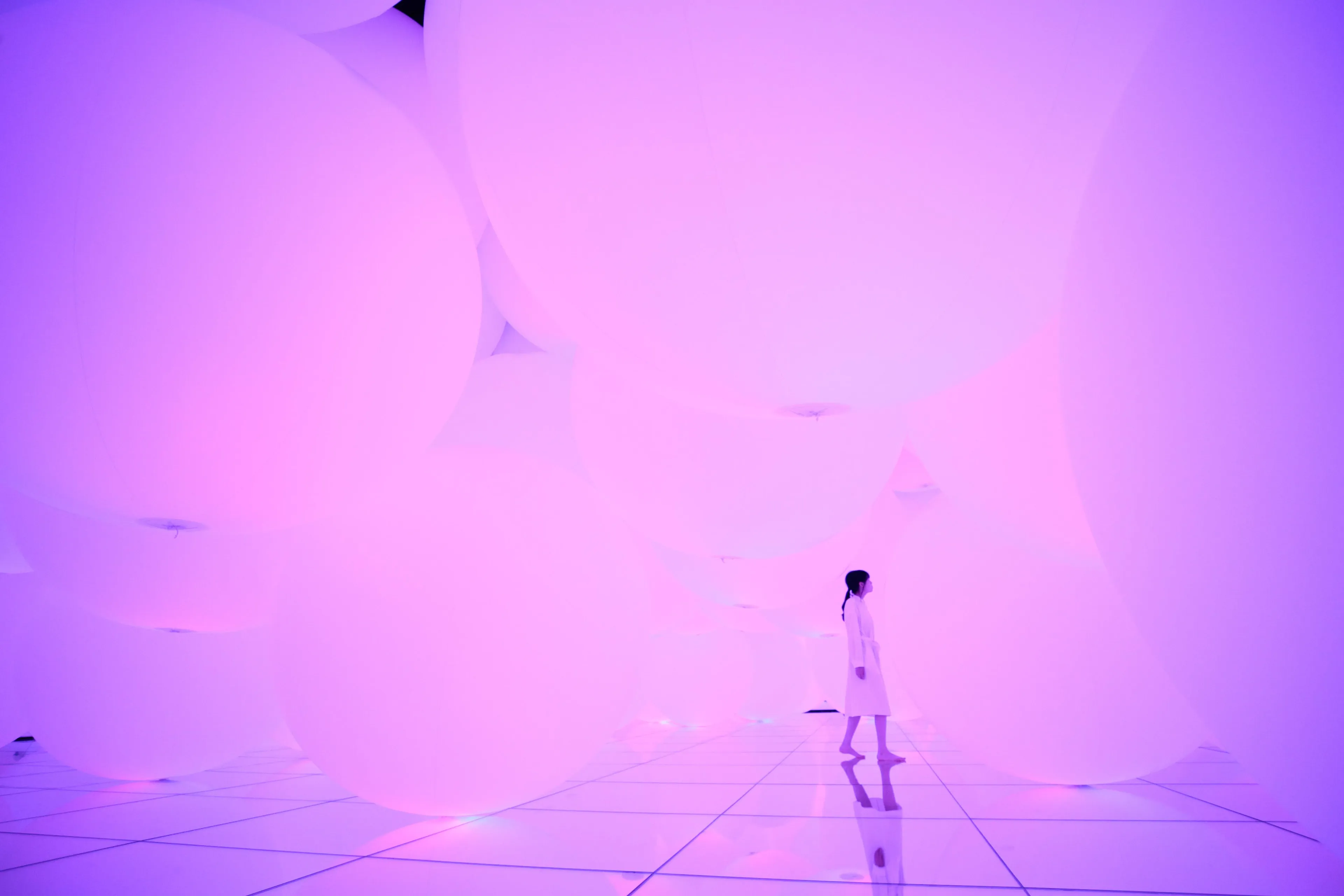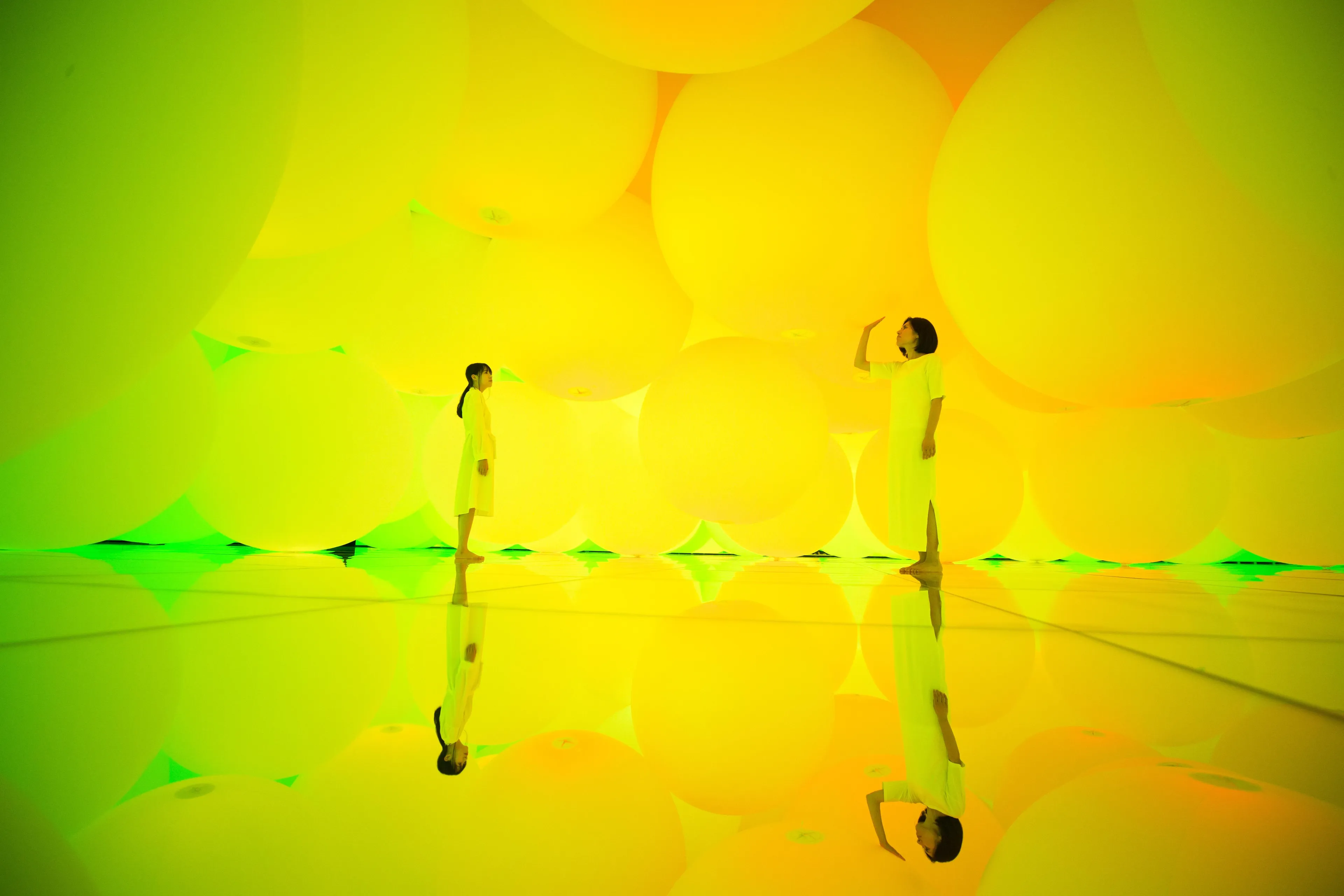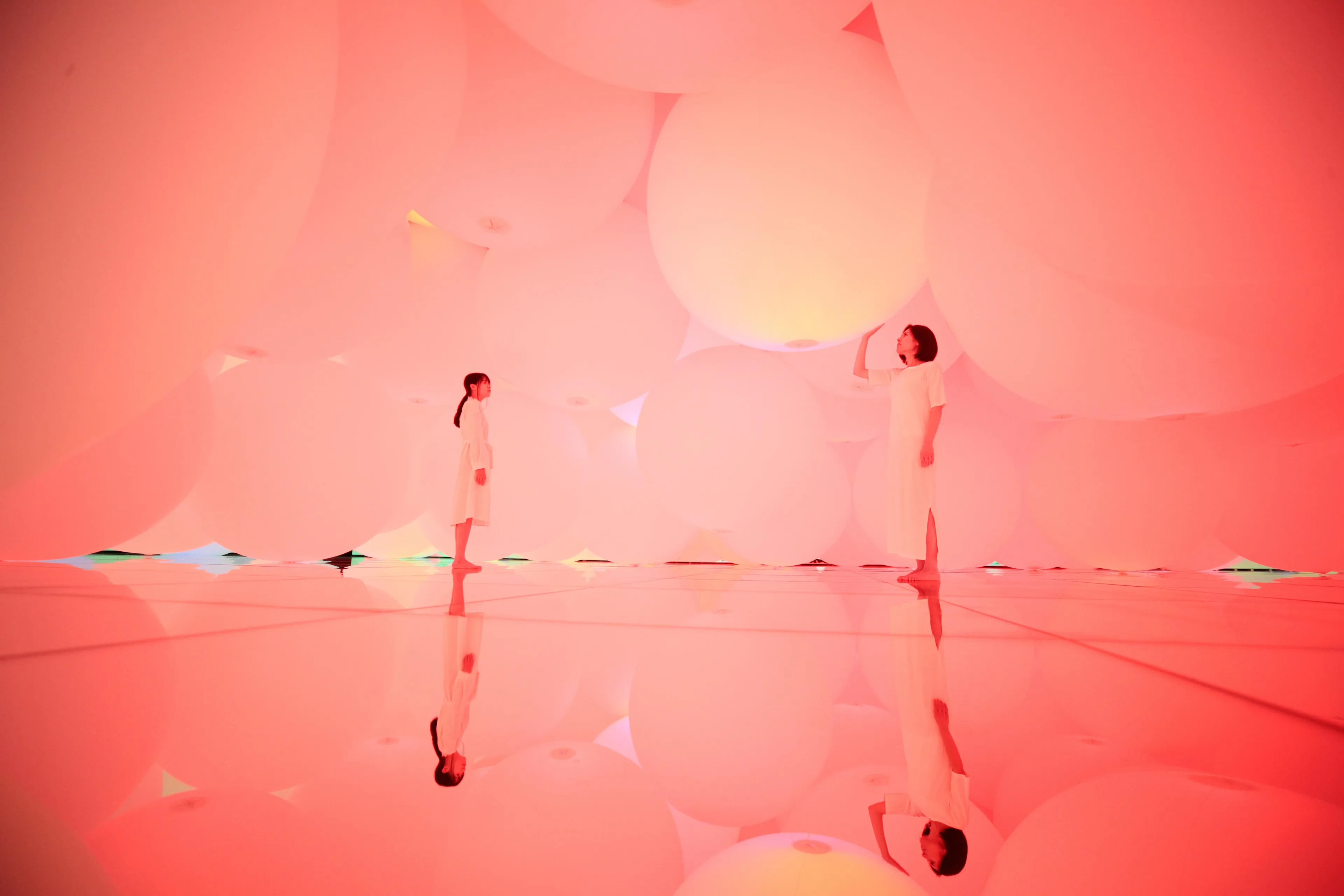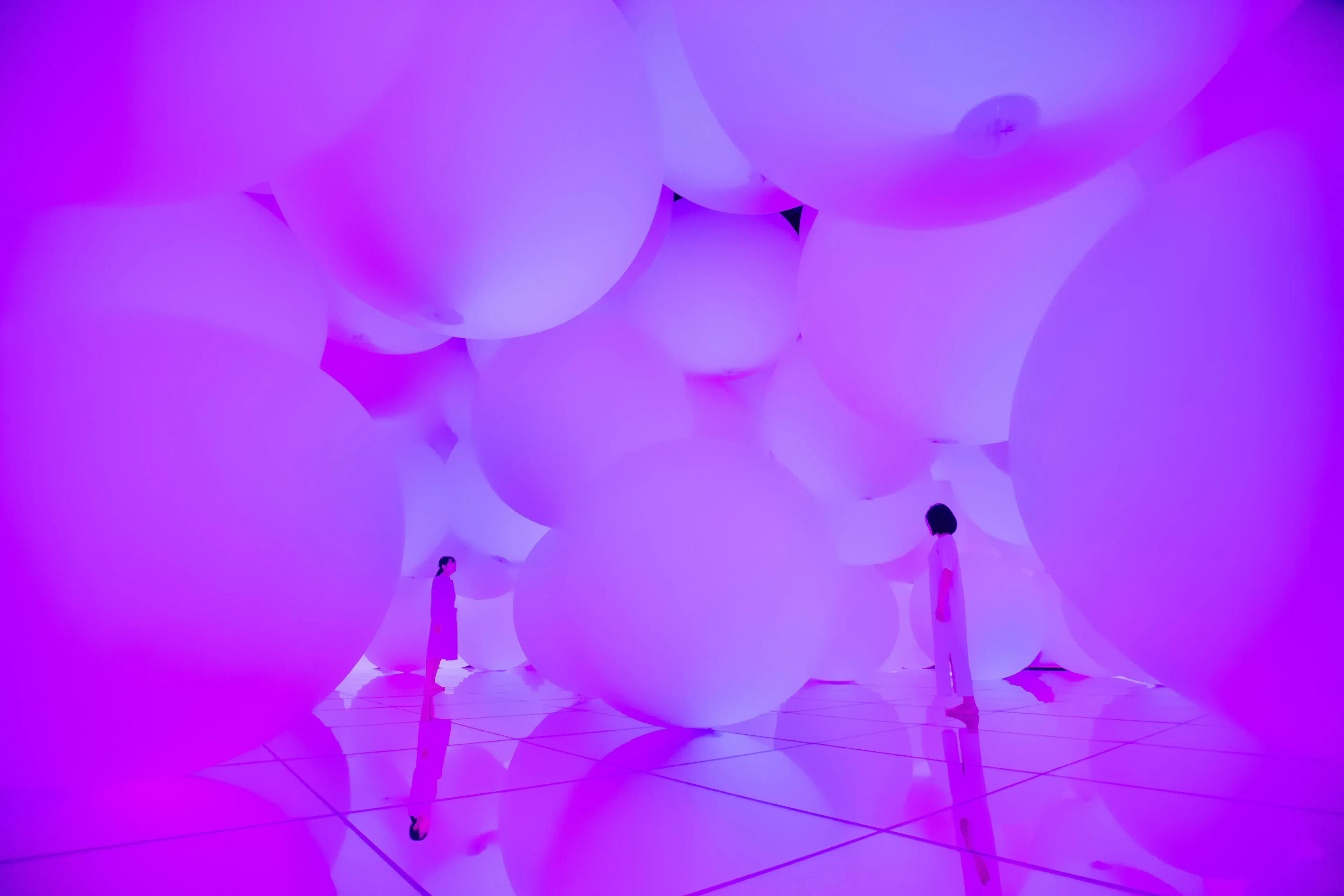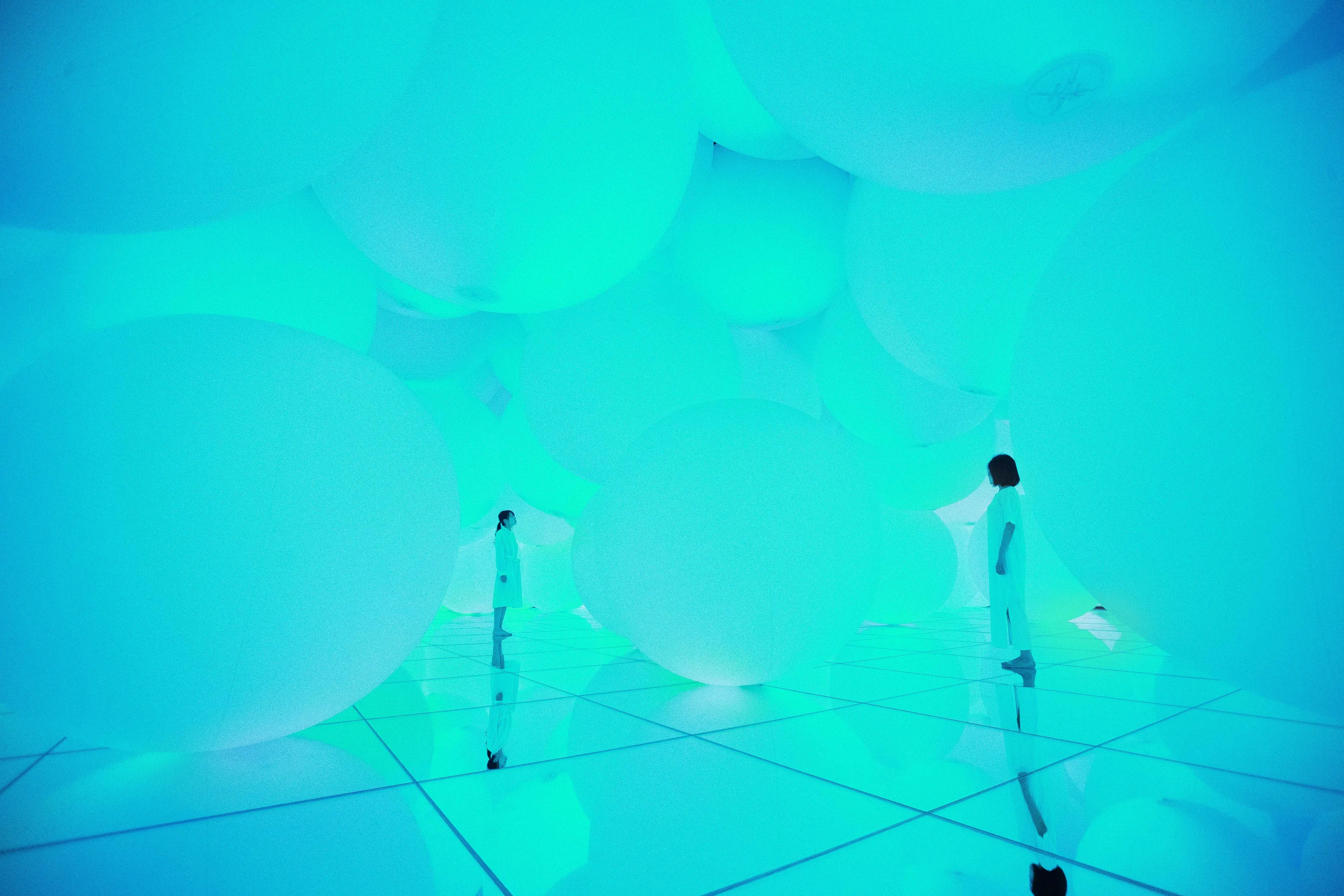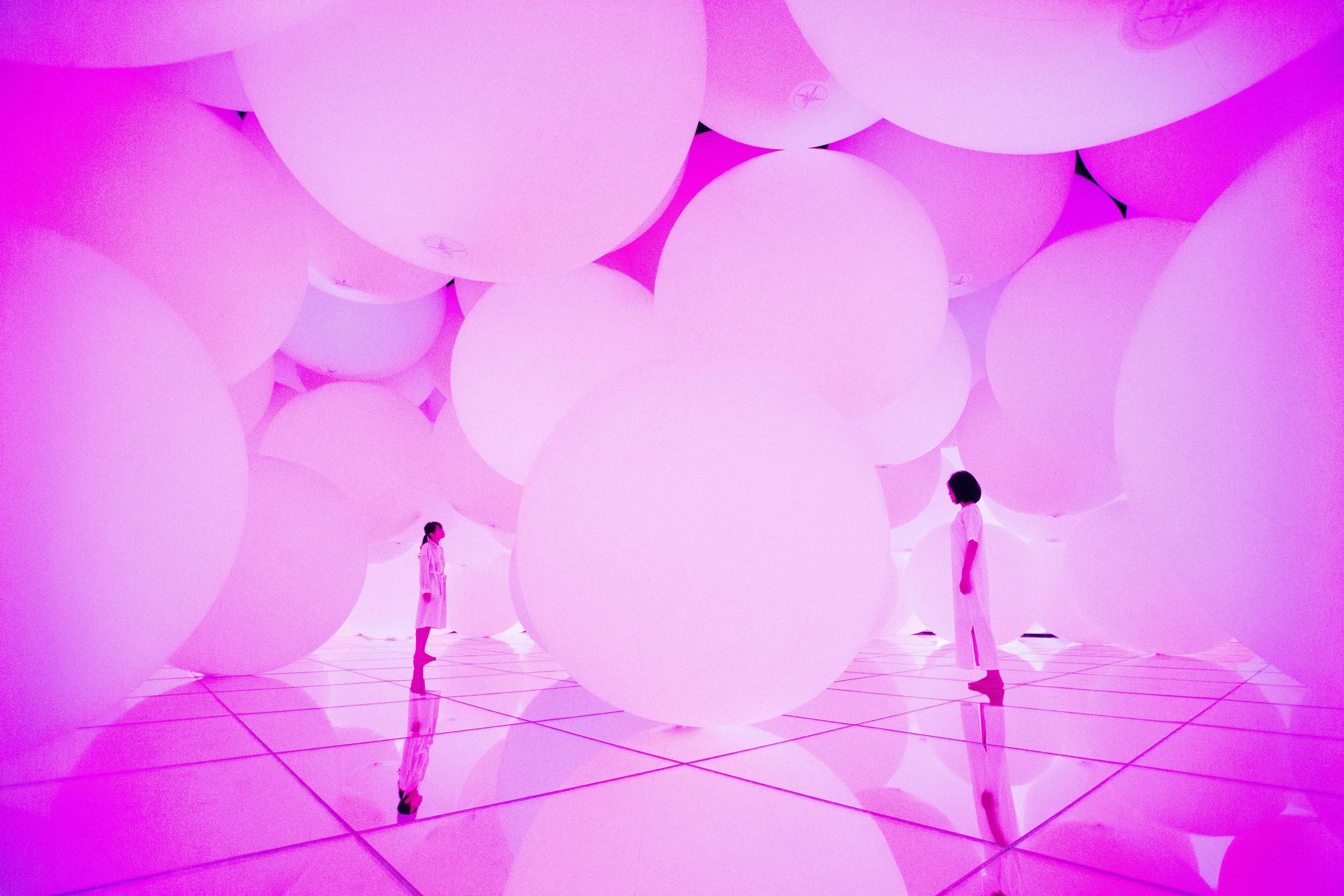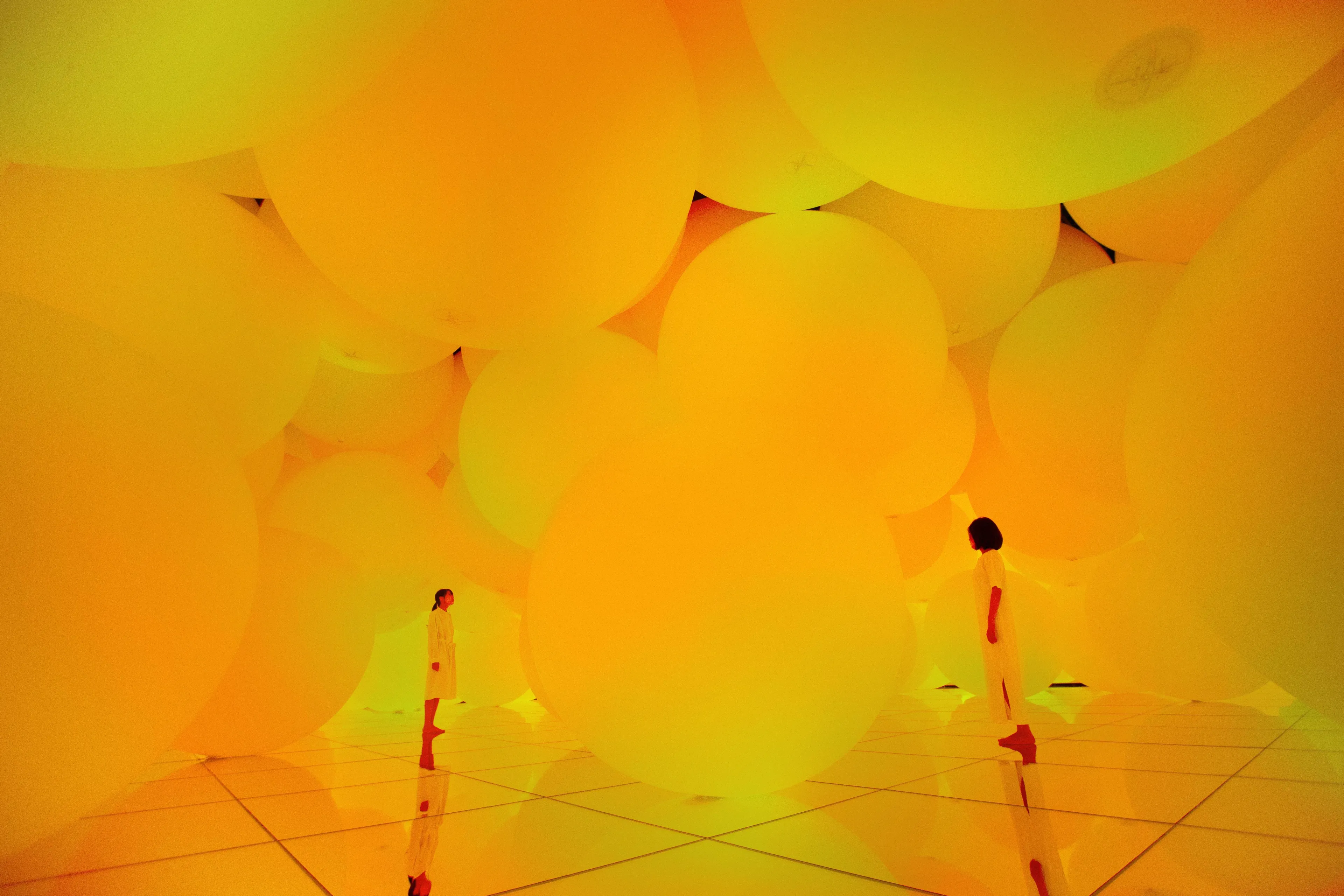Expanding Three-Dimensional Existence in Transforming Space - Flattening 3 Colors and 9 Blurred Colors, Free Floating
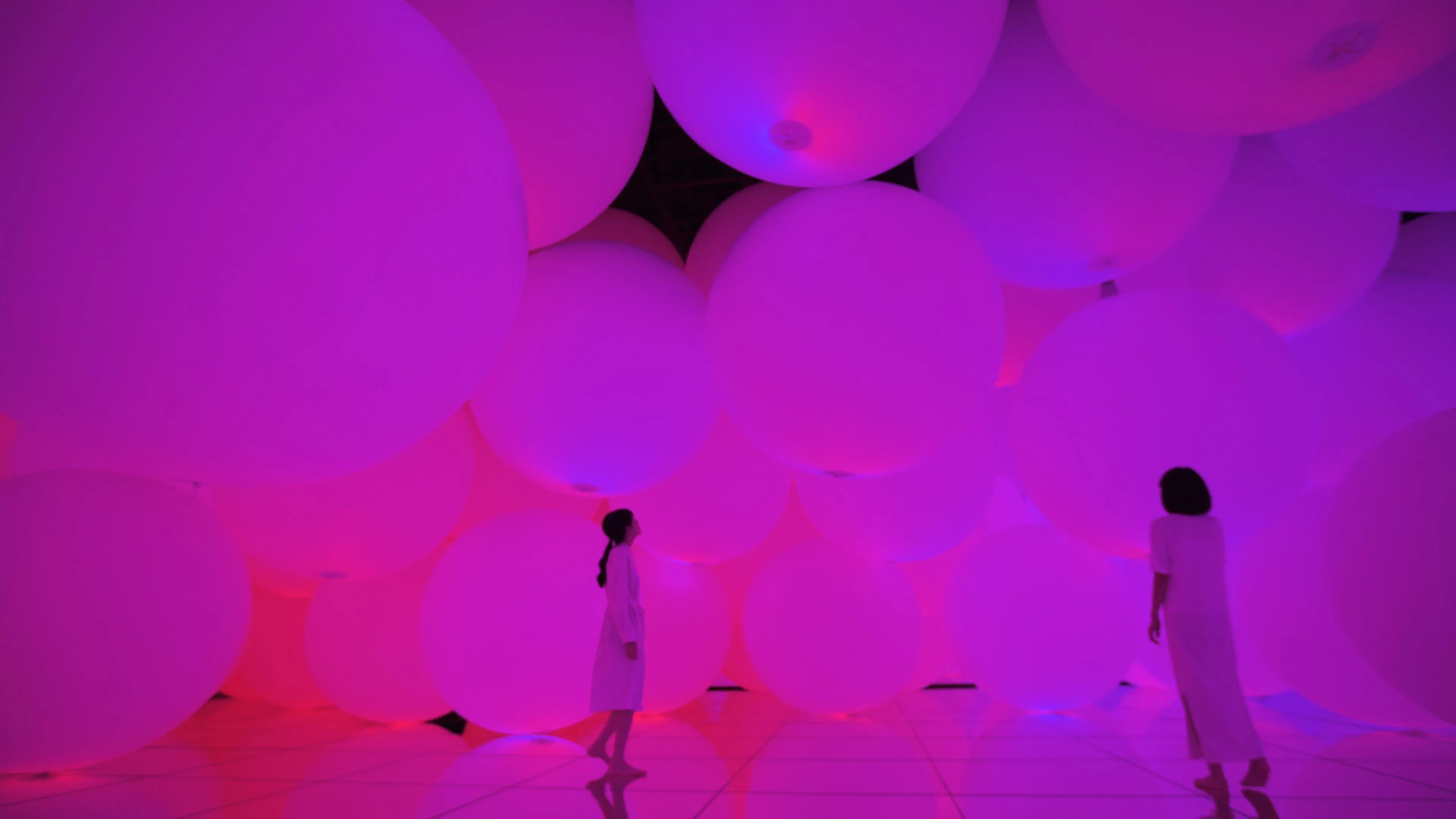
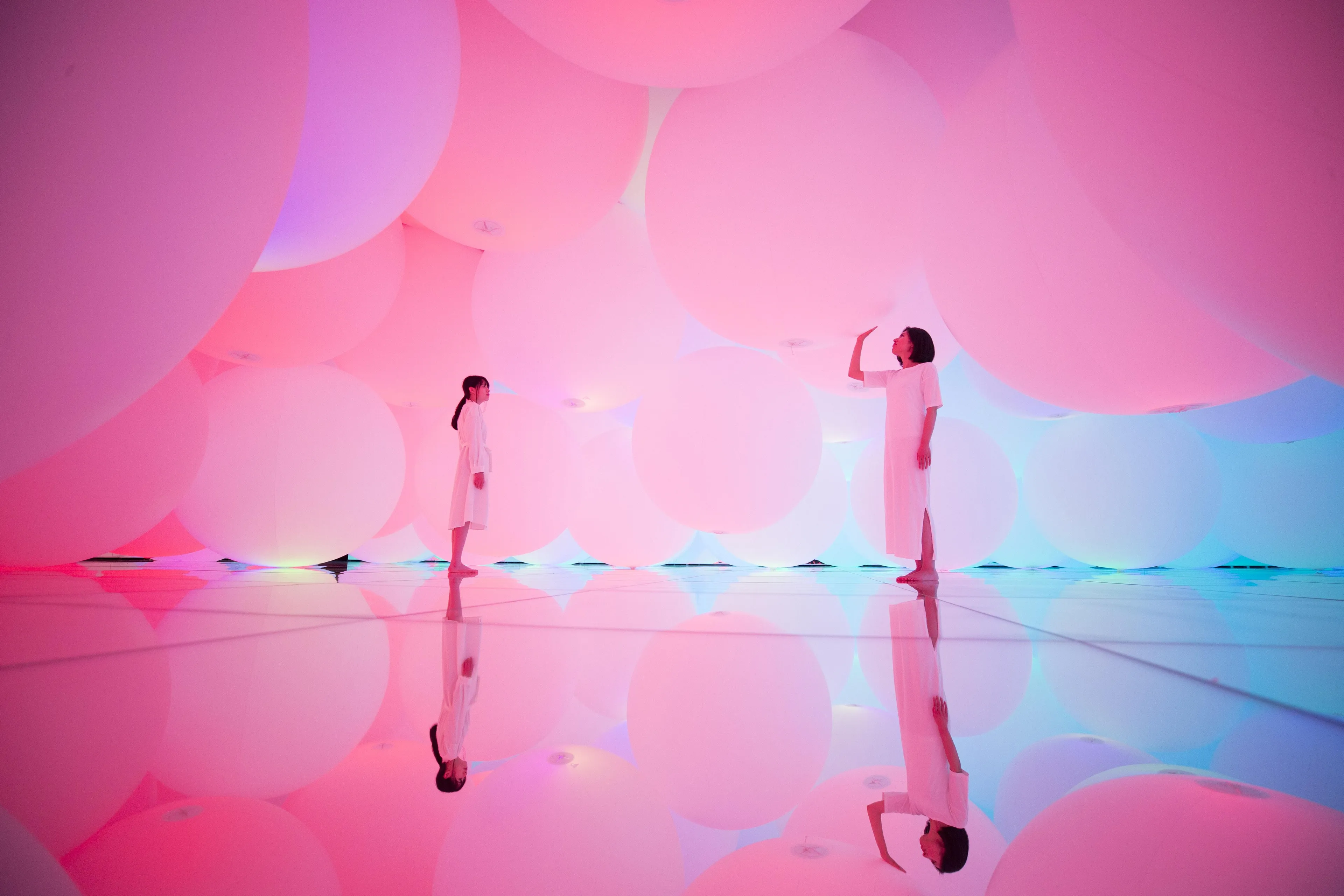
Expanding Three-Dimensional Existence in Transforming Space - Flattening 3 Colors and 9 Blurred Colors, Free Floating
The space is filled with spheres of free floating light. People move through the spheres and enter the space. When people move through or strike them, the spheres change color, and that color resonates out. The spheres around that sphere change color tone and in turn resonate out the color in three-dimensions to nearby spheres.
When the spheres change color, the space itself shifts between a collection of spheres forming a three-dimensional space and a flat color wall.
Even if each sphere moves freely on its own, the behavior of light is maintained across the whole of the space (a three-dimensional image in which one sphere is regarded as one dot). Therefore, the light behaves as a group and can be thought of as one three-dimensional existing space. At this time, the light spreads spherically around the impacted sphere.
Since each sphere is free floating within the collection of sphere elements that make up the three-dimensional space, people recognize it as existing three-dimensionally and part the spheres entering into the three-dimensional existing space.
The shape of the space is determined by the collection of floating spheres and changes according to people's actions (pushing or colliding). Depending on the degree of entanglement of the spheres, and wind and pressure changes, the shape of the space itself will change, empty spaces becoming high density, and spheres rising to the ceiling all at once.
Before the modern era in Japan, Kasane no Irome were seasonal colors created in silk. The colors were the result of a combination of front and back colors, (silk at the time was so thin that the liner was transparent, creating complex colors), overlapping color gradations, complex weave colors, and combinations of warp and weft. Since the sphere colors are produced by light, it has been possible to create nine blurred colors, (light in water, sunlight on water plants, morning glow, morning sky, sky at twilight, peach, plum, iris, spring maple), as well as 3 colors that flatten the space (blue, red, and green), producing a total of twelve colors.

